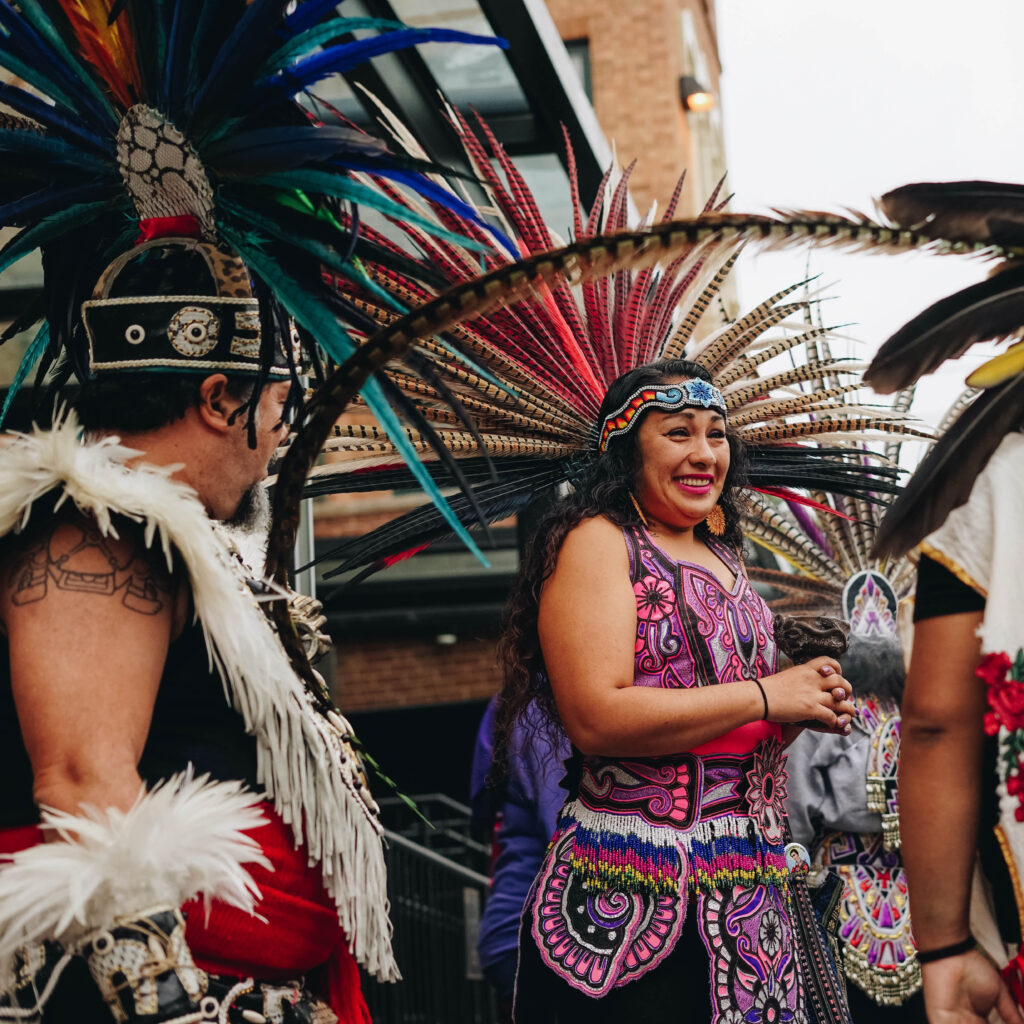Supporting community-led efforts
(NOTE: There is a change to the eligibility criteria for this program. Strengthening Neighborhoods only funds 501(c)(3) organizations or groups with a 501(c)(3) fiscal sponsor. We will no longer accept applications from non-501(c)(3) groups, unless they have a fiscal sponsor.)
The Denver Foundation is pleased to invite qualified community groups to apply for funding from the Strengthening Neighborhoods Program. The Strengthening Neighborhoods Program provides small grants to 1. hire a capacity-building “coach” or 2. support grassroots community organizing campaigns or projects. Projects must make use of the strengths and assets that already exist in the community, such as neighborhood leaders’ skills or neighborhood institutions (like businesses, schools, churches, or parks). The goal of this program is to support communities where people earn less than the area median income and communities of color.
The average grant size is $2,500.
We consider requests for Strengthening Neighborhoods on an ongoing basis, with decisions made monthly. The Strengthening Neighborhoods Fund closes in October.
ELIGIBILITY
- Your community group must be led by at least three (3) unrelated people/leaders
- Your organization must be a 501(c)(3) nonprofit or fiscally sponsored by a 501(c)(3).
- Your organization must be located in and do work in the seven-county Metro Denver region.
Not eligible for funding:
- Sponsorships
- Retroactive funding, i.e., activities, projects, or programs that will be completed before funding becomes available
- Debt retirement
- Grants for re-granting purposes
- Grants for medical, scientific, or academic research
- Grants that further religious activities
- Scholarships (for more information, please visit our website)
- The Denver Foundation does not fund organizations or programs that discriminate on the basis of race, color, religion (creed), gender, gender expression, age, national origin (ancestry), physical or mental disability, pregnancy status, body type, marital status, sexual orientation, or military status, except to serve a historically disadvantaged group.
Grant awards given in previous years are no guarantee of future grant awards.
If you have previously received a grant through Strengthening Neighborhoods, we request that you submit a final report summarizing the work that you did with those grant funds before we consider your organization for subsequent grants from Strengthening Neighborhoods.
Additional information
Types of grants from Strengthening Neighborhoods
- Hire a consultant/coach: Is there something you and your group want to learn? You can use a Strengthening Neighborhoods grant for learning! Have your consultant or coach describe what they will teach you, when they will teach you, and how much it will cost.
- Examples of learning:
- Learning how to launch a worker-owned coop
- Learning how to engage in community organizing
- Learning best practices on how to be a neighborhood navigator
- Learning to develop a board
- Examples of learning:
- Lead a campaign/project: Most community groups are doing something in their community, or are getting ready to do something. This might be a one-time project or a year-long campaign. This grant can help your group overcome obstacles that keep your leaders from getting involved, including the cost of childcare for meetings, interpretation, etc.
Background: The concept behind Strengthening Neighborhoods is a simple yet powerful one: communities have many strengths and assets, including their people, institutions, and public resources. This means that community-led groups often have the best insights into how to improve their neighborhoods, and with financial support, they can reach the best outcomes with and for their communities.
“People have always had ideas about how to improve their communities. But before Strengthening Neighborhoods, there was really no way for foundations to support those ideas,” said David Portillo, Strengthening Neighborhoods officer. “Communities were looked at as ‘glasses half empty.’ When we began looking at communities as glasses half full—and the residents as the ones with the answers—incredible things started to happen.”

